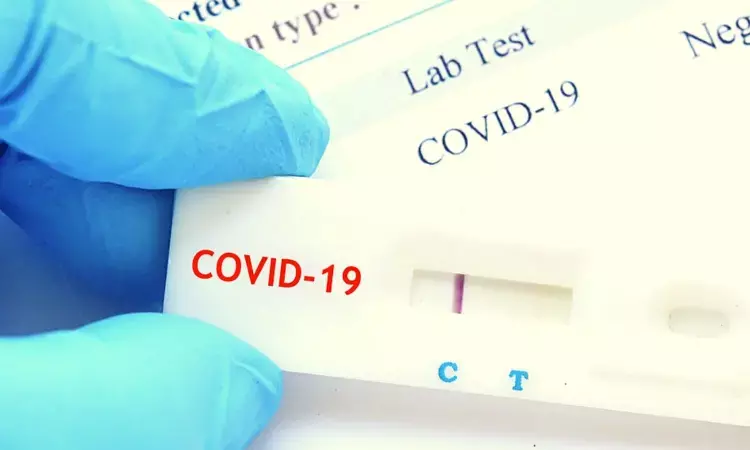- Home
- Medical news & Guidelines
- Anesthesiology
- Cardiology and CTVS
- Critical Care
- Dentistry
- Dermatology
- Diabetes and Endocrinology
- ENT
- Gastroenterology
- Medicine
- Nephrology
- Neurology
- Obstretics-Gynaecology
- Oncology
- Ophthalmology
- Orthopaedics
- Pediatrics-Neonatology
- Psychiatry
- Pulmonology
- Radiology
- Surgery
- Urology
- Laboratory Medicine
- Diet
- Nursing
- Paramedical
- Physiotherapy
- Health news
- Fact Check
- Bone Health Fact Check
- Brain Health Fact Check
- Cancer Related Fact Check
- Child Care Fact Check
- Dental and oral health fact check
- Diabetes and metabolic health fact check
- Diet and Nutrition Fact Check
- Eye and ENT Care Fact Check
- Fitness fact check
- Gut health fact check
- Heart health fact check
- Kidney health fact check
- Medical education fact check
- Men's health fact check
- Respiratory fact check
- Skin and hair care fact check
- Vaccine and Immunization fact check
- Women's health fact check
- AYUSH
- State News
- Andaman and Nicobar Islands
- Andhra Pradesh
- Arunachal Pradesh
- Assam
- Bihar
- Chandigarh
- Chattisgarh
- Dadra and Nagar Haveli
- Daman and Diu
- Delhi
- Goa
- Gujarat
- Haryana
- Himachal Pradesh
- Jammu & Kashmir
- Jharkhand
- Karnataka
- Kerala
- Ladakh
- Lakshadweep
- Madhya Pradesh
- Maharashtra
- Manipur
- Meghalaya
- Mizoram
- Nagaland
- Odisha
- Puducherry
- Punjab
- Rajasthan
- Sikkim
- Tamil Nadu
- Telangana
- Tripura
- Uttar Pradesh
- Uttrakhand
- West Bengal
- Medical Education
- Industry
Rapid antigen tests for COVID-19 screening in children do not meet WHO, FDA standards: BMJ

UK: Rapid antigen tests (also called lateral flow tests) are used widely for screening COVID-19 in children. A recent meta-analysis published in the journal BMJ Evidence-Based Medicine has revealed that COVID-19 rapid antigen tests for children do not meet minimum performance standards set by the US Food and Drug Administration (FDA) and World Health Organization (WHO). Therefore, high false-negative results limit their value in children for the diagnosis of COVID-19 infection.
"The performance of current antigen tests in children under real-life conditions varies broadly. Related data were identified only for very few antigen tests on the market, and owing to poor reporting, the risk of bias was mostly unclear," Naomi Fujita-Rohwerder, Faculty of Biology, Medicine and Health, University of Manchester, Manchester, UK, and colleagues wrote in their study.
Also, the most common uses of these tests in children (eg, self-testing in schools or parents testing their toddlers before kindergarten) have not yet been addressed in clinical performance studies, they explained. The observed low diagnostic sensitivity may affect the planned purpose of the broad implementation of testing programs, they wrote.
In schools and kindergarten, antigen tests are used widely for detecting children with current SARS-CoV-2 infection despite an ongoing debate on potential benefits and harms. In adult populations, sensitivity estimates of antigen test vary broadly and are substantially lower than reported by manufacturers; however, test performance in pediatric populations remained unknown.
Against the above background, Dr. Fujita-Rohwerder and colleagues aimed to systematically assess the diagnostic accuracy of rapid point-of-care tests for the diagnosis of current SARS-CoV-2 infections in children under real-life conditions. For this purpose, they searched the online databases from 1 January 2020 to 24 May 2021.
Diagnostic cross-sectional or cohort studies having pediatric study participants and compared rapid point-of-care tests for diagnosing current SARS-CoV-2 infections with reverse transcription-polymerase chain reaction (RT-PCR) as the reference standard were included. The risk of bias and the applicability of the included studies was assessed using the Quality Assessment of Diagnostic Accuracy Studies 2 (QUADAS-2) tool.
17 studies with a total of 6355 pediatric study participants were included. All studies compared antigen tests against RT-PCR. Overall, studies evaluated eight antigen tests from six different brands. Only one study was at low risk of bias.
The study revealed the following findings:
- The pooled overall diagnostic sensitivity and specificity in pediatric populations were 64.2% and 99.1%, respectively.
- In symptomatic children, the pooled diagnostic sensitivity was 71.8% and the pooled diagnostic specificity was 98.7%.
- The pooled diagnostic sensitivity in asymptomatic children was 56.2% and the pooled diagnostic specificity was 98.6%.
"The observed low diagnostic sensitivity may impact the intended purpose of antigen tests in children," wrote the authors. In this systematic review, evidence gaps demonstrate current research needs to support evidence-based decision making."
"In particular, evidence is needed on the real-life performance of tests in schools (self-testing performed by children) and kindergarten (sample collection in toddlers by laypersons)," they concluded.
Reference:
Fujita-Rohwerder N, Beckmann L, Zens Y, et alDiagnostic accuracy of rapid point-of-care tests for diagnosis of current SARS-CoV-2 infections in children: a systematic review and meta-analysis BMJ Evidence-Based Medicine Published Online First: 18 January 2022. doi: 10.1136/bmjebm-2021-111828
Dr Kamal Kant Kohli-MBBS, DTCD- a chest specialist with more than 30 years of practice and a flair for writing clinical articles, Dr Kamal Kant Kohli joined Medical Dialogues as a Chief Editor of Medical News. Besides writing articles, as an editor, he proofreads and verifies all the medical content published on Medical Dialogues including those coming from journals, studies,medical conferences,guidelines etc. Email: drkohli@medicaldialogues.in. Contact no. 011-43720751


